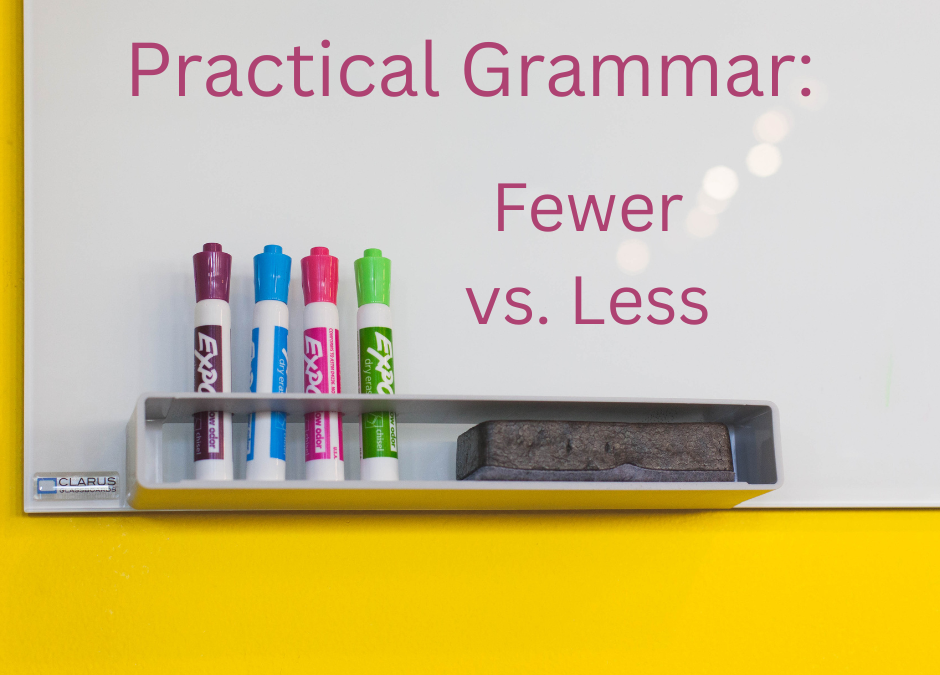One of my biggest grammar pet peeves is misuse of the words fewer and less. This error seems to have become an epidemic because I hear it everywhere. It typically occurs when someone uses the word less when he or she should use the word fewer. Knowing which word to use requires logic.
To demonstrate proper use, I’ve written a discussion between two characters from a novel I’ve written (It’s not yet published. Note: This discussion is not in the novel.). Megan is a 27-year-old high school English teacher, and her sister, Kayla, is a 24-year-old real estate agent.
Kayla breezed through Megan’s front door and plopped onto her sofa, letting the strap of her athletic bag fall off her shoulder. “I sold less houses this month than last month. That frustrates me.”
Megan closed the front door and turned to face her sister, hands on her hips. “What frustrates me is your incorrect grammar.”
“What in the world are you talking about?” Kayla pulled her phone from her back pocket and glanced at the time. “Keep in mind, we need to leave for the gym in a few minutes.”
Megan walked into her living room and rested her bent right arm on the back of her blue recliner. “You sold fewer houses this month. It’s easy—if you can count it, use fewer.”
Kayla sighed. “Can you give me a few examples, please?”
Megan smiled, grateful for Kayla’s curious nature that compelled her to listen. “Never say ‘less people.’ People can be counted. It irritates me at the number of people who say ‘less people.’ There are fewer people, fewer dogs, fewer chairs, and fewer cookies. Got it?”
“Yes. So, when is it grammatically legal to use the word ‘less’?
Megan grinned. “I’m so glad you asked.” She stepped around the recliner and perched on the edge of its seat. “Use ‘less’ when you’re talking about an unspecified amount. Here are some examples—less money, less time, less patience.” Kayla nodded. “Now, you can also use ‘less’ when a collective noun refers to an unspecified number of people.” Her sister’s eyes began to glaze over, but Megan pushed on. “The crowd at the gym was less on Monday than it was on Tuesday.”
Kayla tilted her head. “Wouldn’t most people say the crowd was smaller instead of less?”
Megan nodded. “Yes, they would. Here’s a final example using both words. Because you sold fewer houses, you’ll earn less money.
Kayla smiled sweetly. “That means you’ll be paying for dinner after our workout, right?”



Thank you for this important lesson, Linda. I love the way you write and teach.
Thanks so much, Jeannie!